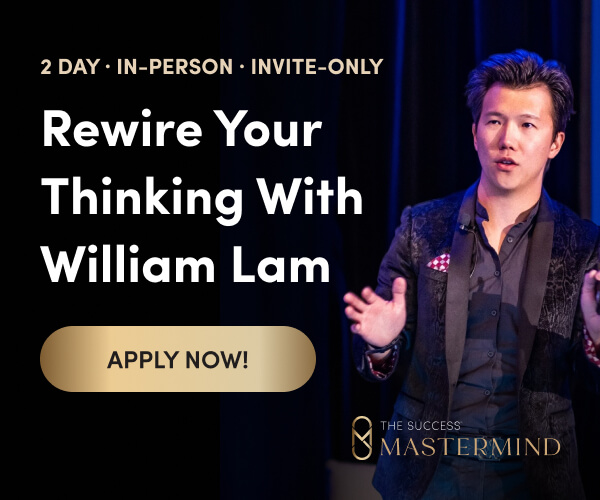A decade ago, I drove to a country club in the suburbs of northern Virginia, expecting a fun and relaxing day of golf (with a bit of networking). My host, Peter DiGiammarino—“Peter D” to his friends—is a seasoned CEO with a penchant for growing leaders and organizations. When we met, he was the CEO of a growth company that primarily worked with the federal government. Golf was not the only thing on Peter’s mind that day; he was considering me for a role within his company.
Peter opened breakfast with a simple “let’s each introduce ourselves.” We each had our turn, talking about everything from family to business. I didn’t realize at the time how long my intro lasted. Peter sat across from me and didn’t speak much. It was clear he decided to listen, watch the group and hone in on my behavior. Also at the table were two of Peter’s good friends—human behavior experts—who would report their opinions on my skills and habits.
Later, while driving away from the second tee, Peter asked if I’d like his feedback from breakfast. I deeply value openness and welcomed it sincerely. He said I had not been present for the others at breakfast and that my self-introduction dragged on far longer than the others’. It was also clear, he continued, that I was a rather poor listener and it was hard for him to imagine me as a successful business leader if I continued such behaviors.
Related: How to Speak Well… and Listen Better
His words penetrated my mind. I had heard similar comments before, but I always rationalized them away. The feedback sank in as I drove across the green. I began to re-evaluate my deepest assumptions about myself as a leader. Throughout the day, I turned several questions over in my mind: Why was I a poor listener? How has that impacted my career? What impact was it having on my marriage? How could I become a great listener?
“How did you get so good at listening, Peter?” I asked snarkily. I struck a nerve.
He paused, then asked me, “How old are you, Daniel?”
“34,” I replied.
He looked me in the eye and said: “Daniel you are so lucky to get the feedback I just gave you. I was nearly 50 before anyone told me I was a bad listener. By then, my behavior had cost me significantly both in my professional and personal life. If you get listening right, you get a lot right in your life. It’s a game changer for every relationship. But if you fail to get it right, it will hurt you in ways you can’t see until it’s too late. You’re 34, and I just gave you a gift. Now do something with it.”
Throughout the past 10 years, I have done a lot with Peter’s feedback. I asked, and listened, to others’ feedback. I’ve read books and studies on listening. I’ve practiced asking questions and mentally reciting their responses. I’ve learned strategies and developed tactics to listen for a deep understanding. But I’ve also learned to listen to myself after all of the other listening is done. My intuition is also an important voice.
This decade-long journey began with a long, socially awkward golf cart ride with a man who wanted to know if I could absorb a reality other than my own. By embracing his reality, I was able to transform my life and career. Peter’s feedback and my choice to grow from it allowed me to form my company, THRUUE. Building and leading a company requires you to listen, process and clarify what those around you say. It takes practice. It forces you to absorb your surroundings and it puts you right where a leader wants to be—“in the now,” as Eckhart Tolle says.
Today, Peter is chairman of the board for THRUUE. He and I speak often, in and out of regular board meetings. But rather than speaking, I am absorbing Peter’s ideas and insights. The more I listen, the more he and I reach a place of true understanding. I don’t always do what he suggests, but I can say I deeply understand him and his ideas.
Here are the tactics I learned to listen with deep understanding:
1. Ask the right questions.
You can’t listen if you don’t ask the right questions. Frame your opening questions in ways that avoid yes or no answers, such as “why did… ” and “tell me more about… ”
2. Clarify to understand.
I do this by summarizing what I think I heard and then asking for affirmation. This leads to trust and validation—two key components for developing and growing strong business relationships.
3. Be honest.
Be open if you check out mid-conversation. We all do it! Great leaders aren’t shy to ask the speaker to repeat what they said, then re-engage.
4. Unplug.
When you’re on a conference call while reading your favorite online magazine, it’s called multitasking. Don’t fool yourself; multitasking erodes productivity. (For more on that subject, check out this report from Stanford.)
The best decisions, insights and solutions come from listening. Listening wins new business. Listening (and delivering) retains business. Listening is a critical part of every business model.
I never could have predicted that a golf game would change an ingrained behavior of mine. So my advice is this: When you enter your next meeting or engage in a casual conversation, shut down the desire to speak first and instead listen for deep comprehension. When you inevitably do speak, you will be more relevant and connected to the speaker. This shift might just change your life and your career.





